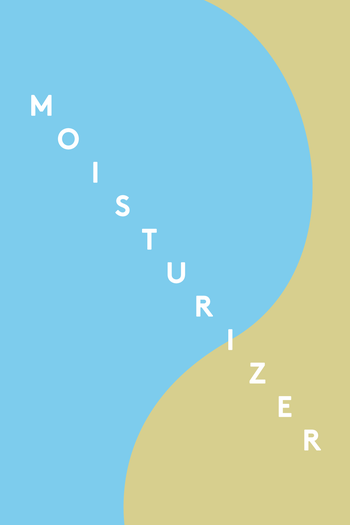 Fighting the signs of aging is like setting up a 401(k) for your skin. You want to start early, making contributions that will pay off decades later. Of course, you can invest in your skin at any time, but the sooner you start, the less expensive it’ll be to undo the damage later.
Fighting the signs of aging is like setting up a 401(k) for your skin. You want to start early, making contributions that will pay off decades later. Of course, you can invest in your skin at any time, but the sooner you start, the less expensive it’ll be to undo the damage later.“It’s never too early to start taking care of your skin,” says Jessica Wu, MD, a cosmetic dermatologist in Los Angeles. “The more you do now to prevent the signs of aging, the less you’ll have to do down the road.”
The key is to be strategic in your anti-aging routine from the start, selecting the right products at the right time. Here are the essential products for an anti-aging starter kit, which are guaranteed to deliver big returns when it comes to keeping your skin looking fresh and smooth.

If dermatologists had their way, you’d be coated in SPF from the minute you leave the womb. “Sun protection is the least expensive, yet most powerful anti-aging regimen,” says Ellen Marmur, MD, an associate clinical professor of dermatology at Mount Sinai Hospital in New York. UV rays are responsible for damaging the fibers that give skin its fullness and firmness, as well as causing uneven pigmentation — not to mention possibly cancer. “Normal aging processes aside, harmful ultraviolet rays from the sun are the number-one cause of skin aging,” says Jeremy Green, MD, a clinical assistant professor of dermatology at University of Miami.
Since sun damage is cumulative, getting involved with sun protection early is essential, Dr. Marmur explains. “I’d really suggest starting around age 16 with a moisturizer containing sunscreen and antioxidants to prevent early environmental damage.”

You know how just about every medical professional will say to always stay hydrated? Well, dermatologists will say the same thing about your skin (and probably to drink more water, too). Sun damage and age inhibit the skin’s ability to hold water, Dr. Green explains, so it’s super-important to replenish that moisture with product.
Keeping your skin moisturized also helps rejuvenate collagen and elastin, Dr. Marmur says. “Moisturizer soaks into fine lines to plump and smooth skin, and it adds a healthy barrier to the skin surface to give skin a younger texture.”
In your 20s, a moisturizer with sunscreen will help cover your bases in one step, Dr. Green says. Try a hydrating daily sunscreen with a lightweight, grease-free texture like EltaMD UV Clear Broad-Spectrum SPF 46. It's also good to moisturize before you go to bed, and as you get older you'll need a more emollient formula. As you enter your 30s and 40s, it's a good idea to use an actual night moisturizer that can help boost depleted hydration, like Olay Regenerist Night Recovery Cream. Its vitamin E, allantoin, and peptides will help skin cells recover while you sleep. More on this ahead.

Adding a nighttime treatment in your 30s (or even earlier) that contains peptides, growth factors, or hyaluronic acid to stimulate the production of collagen, will ensure you're covering all your bases. “You want to firm the skin and keep fine lines from deepening,” says Karen Hammerman, MD, a board-certified dermatologist at Schweiger Dermatology Group. Since you won’t have to worry about being shiny or need to layer makeup on top, you can use a heavier moisturizer with more potent hydrators. Dr. Hammerman likes a moisturizing oil or rich cream to help restore hydration and encourage skin renewal during sleep. Try Origins Plantscription Youth-Renewing Face Oil or L’Oréal Age Perfect Cell Renewal Night Cream.

A Beyoncé performance is pretty much the only thing that receives more universal acclaim than retinoids. “They are an integral part of any anti-aging regimen because their regular use results in skin that is tighter, smoother, brighter, and blemish-free,” says Dr. Hammerman. “Retinoids encourage the cells to communicate and function normally. This process is often disrupted during the aging process.”
Topical retinoids belong in your anti-aging routine as early as your 20s. “I often prescribe Ziana or Retin-A Micro to my younger patients because they can keep pores clear and reduce breakouts, while also stimulating collagen formation and reducing pigmentation and fine lines,” Dr. Green says. He also suggests over-the-counter retinols like Roc Retinol Correxion Deep Wrinkle Filler and Neutrogena Healthy Skin Anti-Wrinkle Cream.
Dr. Hammerman suggests graduating to a slightly more potent concentration of a topical retinoid, like prescription Renova, as you enter your 40s and beyond.

Sometimes, a little tough love does a lot of good. In your skin’s case, performing regular peels can prevent the signs of aging from creeping up on you. “Peels deliberately damage the skin in a controlled way,” Dr. Hammerman says. “This causes old, damaged layers to peel off, and in turn, signals skin to produce more collagen and elastin fibers.” So you’ll see newer, fresher skin immediately and over time, skin will look less creased.
“I tell my teenaged patients to use glycolic acid to get smoother skin texture,” Dr. Wu says. “Glycolic treats acne and unclogs pores.” Dr. Wu stresses the importance of treating acne as early as possible, because acne scars can weaken the skin and turn into wrinkles down the road. Glycolic acid, a type of alpha-hydroxy acid, has the double benefit of being an acne treatment and an anti-ager. Look for buffered, pH formulas like BeautyRx Progressive Peel to avoid irritation.
AHA peels should remain a weekly staple of your routine through the decades. You can increase the frequency in your 40s and 50s to several times a week, as long as your skin tolerates it. Or you can alternate an AHA serum, like Renée Rouleau AHA Smoothing Serum 10%, with a hydrating treatment.

Antioxidants deserve a spot on your anti-aging team because they know how to play defense and offense. These agents fight destructive molecules like free radicals and help boost sun protection, Dr. Hammerman explains. She suggests looking for moisturizers with antioxidant ingredients like vitamin E and green tea by your 30s to give additional protection from sun damage. Dr. Wu is a fan of the antioxidant vitamin C to help brighten sun spots and fade uneven pigmentation. You may want to add a concentrated antioxidant serum, like SkinCeuticals C E Ferulic, in your 30s to protect your skin from and repair environmental damage.

Fillers and neurotoxin injectables may seem like extreme measures to stave off the signs of aging (to each their own), but when used early and conservatively, they can actually be preventative. “Botox can soften wrinkles and frown lines, and prevent them from getting worse,” Dr. Wu says. “In recent years, I’ve treated more patients in their 20s who want to prevent their wrinkles from getting deeper.”
In addition, she says that hyaluronic-acid fillers can stimulate the skin to produce more collagen. Dr. Wu says the key is to use small doses in strategic locations to ensure the effect is natural, not “done.” If you’re seeing the start of wrinkles in your 20s and 30s, Dr. Wu suggests asking your dermatologist about preventative maintenance.

Your habits have a major impact on how well your skin ages. “Anti-aging isn’t just about using the right products,” Dr. Wu says. “The lifestyle choices you make in your teens and 20s — how healthy you eat, how much you smoke, how much alcohol you drink — can show up in your skin decades later.”
Bad habits stress out your skin, and by the time you’re in your 30s your body doesn’t cope so well with stressors, Dr. Hammerman explains. “Stress causes cortisol levels to spike; when you compound that with a lack of sleep, the rate at which you’re aging will increase,” she says.
Skin-care products can't exactly reverse lifestyle habits — so, if you want healthy skin, quit smoking, limit your drinking, get regular sleep, and try to find an effective way to manage stress.

Like this post? There's more. Get tons of beauty tips, tutorials, and news on the Refinery29 Beauty Facebook page. Like us on Facebook — we'll see you there!
Like what you see? How about some more R29 goodness, right here?
The Face-Mask Craze Has Gone Next-Level
The Best Argan-Oil Picks, From Head To Toe
These Eye Creams Are Like Coffee For Your Face